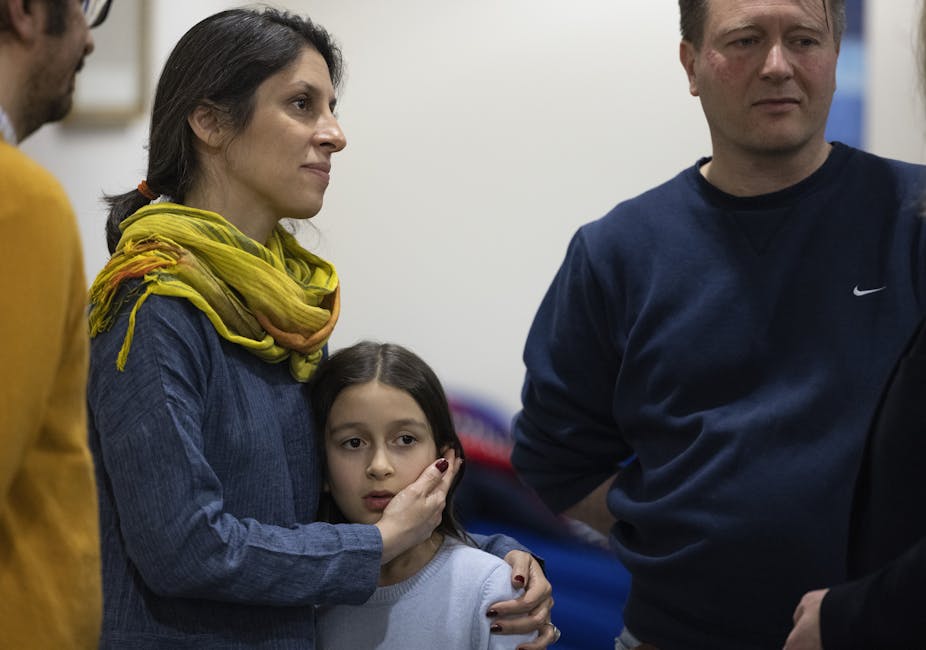After many years and several unsuccessful attempts, two British-Iranian dual nationals have been released from custody in Iran and returned home to the UK.
Nazanin Zaghari-Ratcliffe and Anoosheh Ashoori, arrested in 2016 and 2017 respectively, were both detained on charges of spying. A third prisoner, Morad Tahbaz, who has joint UK-US citizenship, has also been released from prison.
The release of the prisoners comes after years of negotiations and intense diplomatic efforts in the last six months. Rumours abound of further western prisoner swaps in the near future.
It has also come as the result of settling a long-overdue debt. The UK has owed Iran a payment since 1979 when it failed to deliver on a defence contract. Although international arbitration confirmed in 2009 that the UK needed to repay nearly £400 million to Iran, increasing international sanctions have made it difficult to make the payment.
The British government has previously stressed that the debt and the prisoners were not linked. But foreign secretary Liz Truss made clear in her statement that the release of prisoners was “in parallel” to the payment of debt, which has now been made.
As a result, two big issues for British-Iranian relations have been alleviated, paving the way for a more productive relationship. The Omani foreign minister, Sayyid Badr Albusaidi, who helped broker the negotiations for Zaghari-Ratcliffe and Ashoori’s release, said that he hoped the result would “bring further progress in the dialogue between the parties”.
British priorities
Now that these issues have been settled, the future is promising for improved relations between Britain and Iran. Although deep-rooted suspicions, based on a long history, make it unlikely that Iran will fully trust Britain any time soon, the UK offers diplomatic and economic opportunities while looking less like a security threat in the region.
There are three key priorities Britain will have in mind with regards to Iran. First, to limit Iranian nuclear capabilities. Following the US withdrawal from the 2015 nuclear agreement, Iran stepped up its uranium enrichment programmes. A return to nuclear negotiations in 2021 was warmly welcomed by the UK and the British have been a participant in the ongoing talks, which look to be near conclusion. Securing a new deal would further improve relations.
Second, Britain has been keen to support the normalisation of diplomatic and economic relations with Iran within the region and with western powers. Even after the US reimposed sanctions, the UK, Germany and France created a payments system (Instex) to encourage European businesses to trade with Iran outside of the US sanction limitations. The success of Instex has been limited, and the UK will need to continue to work hard to encourage British companies and banks to invest in Iran even if a new deal is reached. This will be significant to ensure that relations grow between the two nations and that Iran does not simply continue to turn towards eastern allies, as it has done in recent years.
Finally, Britain has been focused on limiting the destabilising activities of Iran in the region. Iran has had – and continues to have – a significant impact on conflicts in Iraq, Yemen, Syria, Palestine and Lebanon. Meanwhile, its ballistic missile programme is an ongoing source of concern, particularly for Saudi Arabia. In reality, these issues are much more challenging to address immediately, but a step-by-step approach to diplomacy in other areas can help build relations to revisit these concerns at a later stage.

The UK also has a number of ongoing concerns that are not about to be resolved, including the Islamic Revolutionary Guard Corps’ (a branch of Iranian Armed Forces under the direct order of Ayatollah Khamenei) support of terrorism and Iran’s failure to uphold human rights.
Still, it is possible to have a more productive and pragmatic relationship than has existed in recent years. The payment of the debt and release of prisoners provide important, positive, diplomatic signalling from both sides at a crucial time for the all-important nuclear negotiations.

